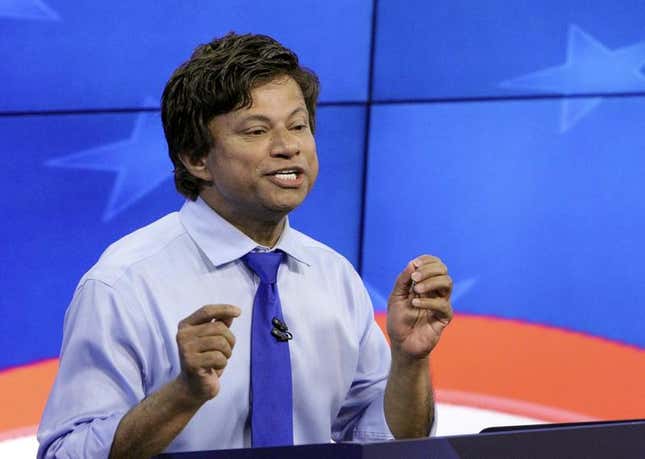
The city of Detroit has not been without a black representative since Charles Diggs Jr. took office in 1955. Based on the results of Tuesday’s primary, the predominately Black city will most likely be without a Black congressperson for the first time in over 65 years, according to the Associated Press.
Michigan’s redrawn 13th District saw its primary won by State Rep. Shri Thanedar. He will go up against Martell Bivings, a black Republican candidate who ran unopposed. However, it’s doubtful Bivings will beat Thanedar for the seat.
Many people are pointing to a redistricting decision that blended Detriot’s 80% Black population with the suburbs surrounding the city. The Independent Citizens Redistricting Commission paved the way for new House and legislative maps, which will remain intact for ten years.
In January, an ensemble of former and current Black Detroit lawmakers filed suit over the redrawn districts, claiming they lessen the voting power of African Americans in the state. However, the concern is not limited to congressional representation. Given the results of state legislative races, the Detroit Press notes Black representation will fall below the 20 currently serving.
Former state Rep. Sherry Gay-Dagnogo is one of eight candidates who lost out to Rep. Thanedar and has voted her displeasure about the redrawn maps.
“At a time when the Black community is reeling from a rollback of voting rights and Black women — who already face inequity with maternal health and barriers to safe abortion care — deal with the impact of the Roe v. Wade reversal, Black representation in Congress for Michigan and for Detroit matters now more than ever,” Roberson said Wednesday. “Many people woke up this morning justifiably concerned.”
The redistricting process shrunk the majority-minority districts in Michigan from 17 to 5. University of Michigan political science professor Ken Kollman feels that the total number of candidates and lack of coordination also contributed to Thanedar’s primary win. Now, the city has the largest Black majority of any major city in the U.S. and will be in unfamiliar territory come November.
“I would assume too many voters in Detroit it’s a big deal, and I’m sure it is something that’s a big disappointment for many voters in Detroit,” Kollman said of the possibility of the city having no Black voices in Congress. “Whether it will lead to different representation on substance or issues depends greatly on how the particular people who represent Detroit act in Congress.”

